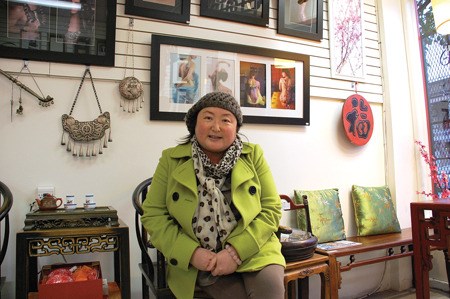It would be an understatement to say the vibe in Chinatown has merely changed in recent years, according to Andrew Wong.
It actually has a vibe now, says the area resident and business owner. Right through the 90s it had almost no vibe, no pulse.
Its been a decade since Wong opened his Chinese fusion eatery, Wild Rice, near Pender and Abbott a block away from the Chinatown gate. In the early days the area was a virtual ghost town with commerce limited to the grocery stores and restaurants along Keefer and Pender streets during daylight hours only. As soon as 5:30 hit, zero, nothing. I can count multiple evenings where we would be the only thing moving on the street, and that would be going all the way up Pender Street heading into Strathcona, he recalls.
Not anymore.
These days Wong says mornings in Chinatown are marked with commuters on their way to work proof more people are living in the area and evenings are much more lively. The recent addition of several bars and restaurants such as Bao Bei, the Keefer, Fortune Sound Club and Electric Owl have capitalized on the relatively low rent and edgy atmosphere Wong says he identified early on as a draw for the neighbourhood.
The region itself attracts the adventurous. Its the Ive been to Manhattan more than once crowd, he says.
Its also attracting a crowd thats more a mix of the general population, i.e. fewer Chinese.
The demographic shift in Chinatown wasnt on the radar at a recent mayoral candidates debate in Chinatown where Gregor Robertson and Suzanne Anton squared off over standard election issues such as affordable housing and security and traded barbs over the Stanley Cup riot and Occupy Vancouver. But Wong and other Chinatown-area business owners say the changing face the neighbourhood raises an important question the next council will have to address: How do you balance the shifting population thats led to a nascent economic revival while protecting Chinatowns traditional cultural identity?
In the sense that we can hold on to an identity, to a region where a tourist can safely say, hey theres the Chinatown, in that sense [it is a question], says Wong.
Merchant Jane Feng agrees. The owner of Han Fung Arts on Pender Street, Feng owns one of several shops in the area that sell traditional Chinese artifacts. The trendy nightspots that have opened up nearby have brought more diverse traffic to the area after dark, she says, but that hasnt translated into daytime customers at her shop specializing in porcelain, tea and her own original photography. Lacking the crossover appeal of trendy bars and restaurants up the street, small businesses like hers need the citys support if they are to remain in the neighbourhood and lend authenticity to Chinatowns branding as a cultural distinct neighbourhood one recently granted national historic status.
People dont just come here for the heritage buildings; [its] also the Chinese culture we need to keep in this area, she says. So city planners and organizations in Chinatown, they need to organize to have an amount of Chinese culture-related business in this area.
More than the NPAs proposed downtown streetcar, traditional shops in Chinatown need help to modernize and market traditional Chinese products in a way that reaches a broader clientele, says Feng. Next door at Rising Sun Fashion, owner Jennifer Lok says the changing clientele is a good thing. In the last three years, Fok says shes also noticed the area Westernize considerably, crediting the new restaurants and bars and efforts to clean up the neighbourhood for the shift. We have more decent people coming, more Western, less Chinese, she says with the help of an employee translator. Its a different culture. I like Canadian customers.
Feng, too, says the change is generally a good one, noting Chinatown merchants hope to one day rival the foot traffic enjoyed in Gastown and on Granville. But with the neighbourhood eyeing the dining and drinking scene thats exploded just a few blocks over Gastown, Feng cautions it will take the vigilance of city council and community organizations to ensure that Vancouvers Chinatown isnt just in name only.
reporter@wevancouver.com



